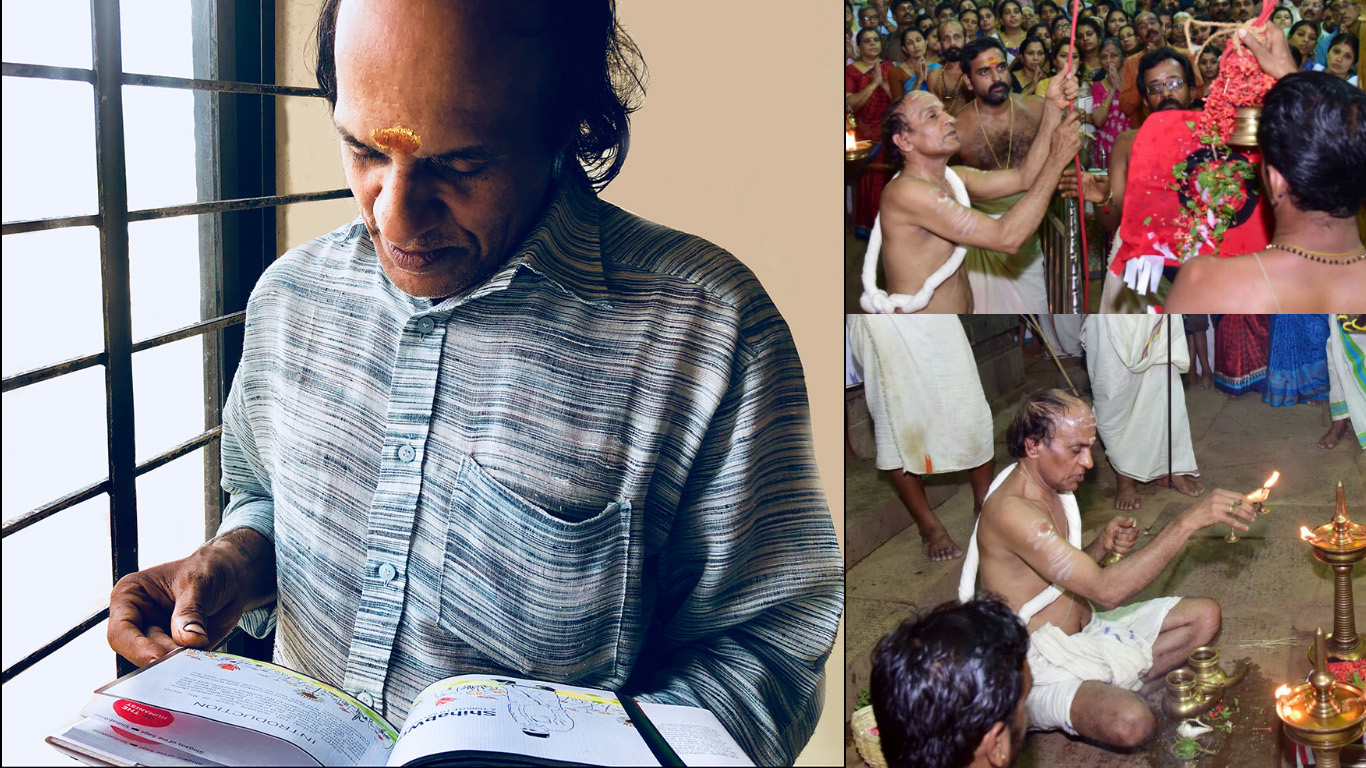
So, how would it sound when Sanskrit, the darling of devotional Hinduism, and Urdu, the enemy-branded lingua franca, merges in one lover — writes Mujeeb Jaihoon after meeting Narayanan Namboothiri, the head priest at Thirumandhamkunnu Bhagavathi Temple
Intellectual Indigestion of Mughal Contributions
The wounds of Partition are being reincarnated under new fervor and flavor in the post-independent Republic. Though the Nation was free of the Colonial British, the minds of many are yet to be liberated from the haunting memories of Babar and his successive rulers.
While the grandsons of Timur did what they did for consolidation of political power, some fanatic minds find it convenient to color the Mughals’ deeds and misdeeds with the religion they professed, if not practiced entirely. As a result, they suffer from intellectual indigestion— read intolerance— of the cultural and linguistic contributions of the ‘foreign dynasties’ who ruled India prior to the British.
Free Ride on Mughals’ Pride
It is altogether another reality that despite their dislike of the Sultans, even under the present Hindutva-hijacked totalitarian regime, the Republic Day and Independence Day are patriotically and phenomenally celebrated at the Red Fort, Delhi— both developed during the pristine days of the despised ‘foreign Sultans’. The visiting foreign heads of States, ranging from Israeli to French to American, religiously visit the Taj Mahal— as if the tomb built by the Mughal king was the national pride of the Republic. None of them require an archaeological expert to explain that it is simply a Muslim tomb built by a Muslim king for his Muslim wife in the design of a Muslim mosque. As if this monument is all that is Indian for the countless tourists aspiring to visit this Hindu Rashtra. Is it that post-Mughal India did not have the funds to build another ‘national’ structure to represent the Nation and generate tourism dollars for its economy.?
Urdu: The Partition Victim
Among the hapless victims of the gruesome atrocities committed in the name of Partition is the language of Urdu, which, unfortunately for its Indian speakers, became the official language of the dreaded ‘Other’. LOC had become synonymous with Line of Contempt, than Control. The language, which shares Indo-Aryan base along with Hindi, is composed in Persian-like letters while Hindi is inspired by Sanskrit script.
Urdu-some meets Hindu-some
So, how would it sound when Sanskrit, the darling of devotional Hinduism (not to be mistaken for militant Hindutva), and Urdu, the enemy-branded lingua franca, merges in one lover of equal devotion and admiration? It would sound as beautiful as the Urdu-some mantras of a Hindu-some Priest.
Narayanan Namboothiri, the head priest at Thirumandhamkunnu Bhagavathi Temple in Angadipuram town of Malappuram district of Kerala- India, is an amazing avatar of this melting pot phenomenon. Despite opposition from his family, the upper caste Hindu Brahmin boldly pursued his passion for Urdu during his youth to finally become a teacher of the language in government schools while simultaneously mastering the art of performing Hindu devotional rites in the ancient and prominent temple of Kerala. The Thirumandhamkunnu Bhagavathi Temple is associated with the legend of King Mandhatha of Surya dynasty and Lord Siva.
Mantras of Peace
It was an honor to meet with the Priest at his hometown along with KP Shamsudheen, Kerala’s own tireless Urdu activist and senior member of Kerala Urdu Teachers Association. I thought the best souvenir to gift the priest was Slogans of the Sage, the illustrated collection of aphorisms by Sayyid Shihab Thangal, the late Indian statesman and philanthropist, who was also an ardent Urdu lover and a lifelong champion of communal harmony and pluralism. The Priest accepted the coffee table book with a smile and prayer for the late Sayyid as well as for the Nation’s return to tolerance and love between its peoples.

Narayanan Namboothiri, the head priest at Thirumandhamkunnu Bhagavathi Temple, Mujeeb Jaihoon, writer and activist, and KP Shamsudheen, Urdu activist and senior member of Kerala Urdu Teachers Association.
Posted Sep 03 2018

